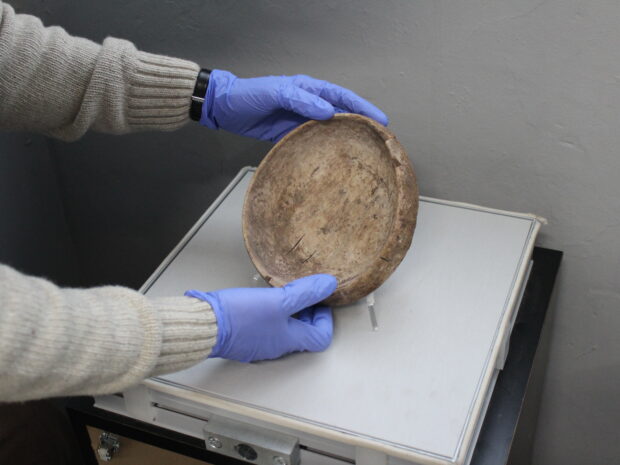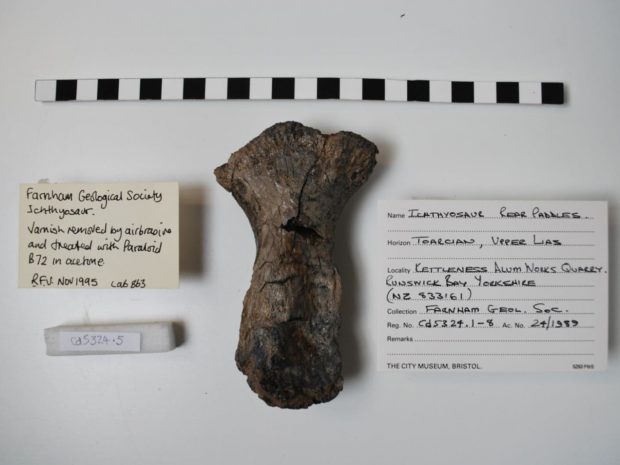About the project
‘South West Area Natural Sciences: Setting Natural Science Collections Data Free’, was a collaborative pilot project between Museum Development South West, Bristol Museum & Art Gallery (Bristol Culture & Creative Industries) and the Natural History Museum London.
The project aimed to help inform how the needs of regional institutions can be accounted for in an emerging national infrastructure called DiSSCo UK, the Distributed System of Scientific Collections. DiSSCo UK seeks to unlock the combined potential of UK natural science collections to support research, innovation and engagement in urgent areas such as biodiversity loss and sustainable futures – by digitising a critical mass of collections bio- and geodiversity data.
Project aims
‘South West Area Natural Sciences: Setting Natural Science Collections Data Free’ project specifically sought to:
- Build an understanding of the relationship between specimens, collection data and the digitisation process, which will establish recommended procedures to support inclusion in research
- Build knowledge and understanding of how to digitise natural sciences specimens in accordance with best practice
- Seek an understanding of how operations impact participation and the factors or barriers for success
- Develop advice and guidance for the wider museum and heritage sector to support participation
- Engage audiences in the value of natural sciences collections
The project worked with Bristol Museum & Art Gallery, Newton Abbot Museum, and South West Heritage Trust to digitally share their natural science specimens and associated data. As part of the pilot:
- Bristol Museum and Art Gallery digitised 195 pinned insects (butterflies and moths) from the Douglas Gordon Gibb collection of British Lepidoptera primarily collected from Avon, Somerset, and Gloucestershire between 1932 and 1969.
- Newton Abbot Museum digitised 449 specimens from the Mapleton Collection, collected by Henry Mapleton, a local Newton Abbot doctor who collected butterflies in his spare time.
- South West Heritage Trust digitised 119 pressed seaweed specimens collected from Somerset, part of a wider collection of 953 specimens collected by Isabella Gifford in the 1840s, 1850s and 1860s.
All three museums’ digitisation efforts had wider impacts, demonstrating the value of natural science collections to wider research and raising awareness of the role collections can play in responding to the climate and ecological emergency.
- Bristol Museum and Art Gallery’s digitisation of its pinned insects helped support the West of England Combined Authority funded Pollinators project co-ordinated by the Bristol Natural History Consortium.
- Newton Abbot Museum’s project captured the attention of the media and was included in a summer exhibition, raising public awareness of the value of natural science collections in supporting efforts to mitigate the impacts of the climate and ecological emergency.
- South West Heritage Trust displayed their seaweed collection to help engage audiences to understand more about our natural world.
“DiSSCo UK represents a fantastic opportunity to increase the impact of UK natural science collections for environmental research and engagement. Bristol Museums were pleased to lead on this pilot together with SWMD and NHM London, to help demonstrate the incredible potential of regional collections. Our pilot recommendations indicate how institutions from large to small can be supported to participate, in turn helping develop a community-focused national infrastructure with widest benefits for people and nature.”
Isla Gladstone, Senior Curator Natural Sciences, Bristol Museums
The project formed part of a bigger scoping-project led by the Natural History Museum, ‘Setting natural science data free: scoping a UK collections approach’, funded by the Arts and Humanities Research Council. The UK holds some of the world’s most important natural science collections, with more than 130 million specimens stored in more than 90 institutions throughout the country. They are a gateway to inspiring a lifelong love of nature, and a vital source of scientific information about the natural world. The Arts & Humanities Research Council are supporting the development of a national infrastructure for digital innovation and curation, and Natural History Museum London are working with natural science collections around the UK to understand the size, diversity and significance of UK natural science collections and establish the digital infrastructure that will enable them to be used even more widely for research.
“There is a huge demand for UK natural science collections data – with existing data being accessed every 4 minutes – but most collections lack resources and support for data mobilisation. This project builds towards a national research infrastructure to maximise the impact of collections and their data, building towards a future in which both people and the planet thrive.”
Helen Hardy, Deputy Head of Digital, Data & Informatics, Natural History Museum


